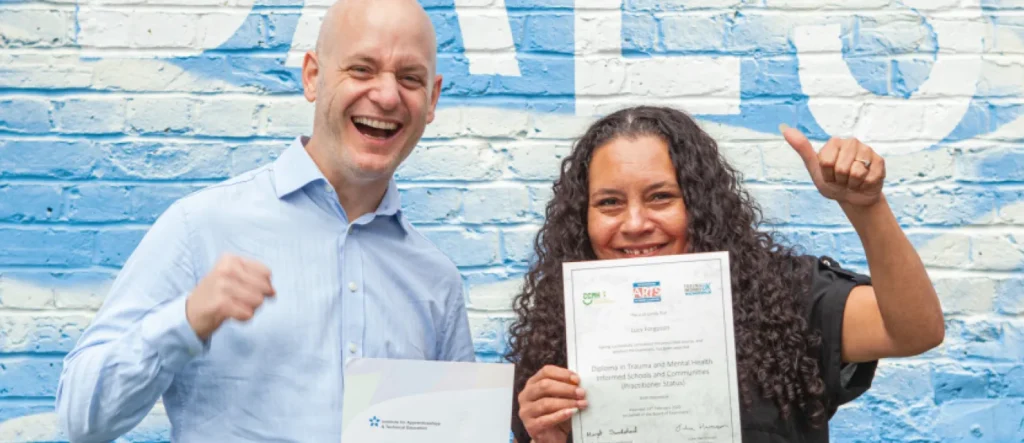

Service Delivery
Many organisations recruit voluntary and paid lived experience roles. The aim is to enhance front-line community services. Roles such as Peer Support Workers and Community Advocates are becoming more common.
This reflects a wider recognition of the importance of lived experience in shaping effective services.

Benefits of Peer and Lived Experience Roles
Unique Support: Bring empathy, understanding, and support to service users. They often share similar experiences.
Insightful Guidance: Understand the challenges faced by service users. They are familiar with the support options.
Building Trust: Inspire having overcome similar struggles. This builds trust leading to better engagement with hard-to-reach service users.

Key Considerations
Volunteer or Paid Roles: Choosing between the two has different implications. Think about Department for Work and Pensions compliance and the negative impact payments can have on benefits.
Useful guidance:
– Volunteering – WCVA
– What is volunteering – NCVO
– Volunteering and claiming benefits – GOV.UK
Role Suitability: Ensure safeguarding, practices and policies are in place. This is to protect both volunteers and users. Trauma Informed Practice is important to avoid re-traumatisation.
Inclusive Recruitment: Ensure recruitment is accessible, removing barriers to people with lived experience. It can be difficult for those with a history of complex trauma, experience of the criminal justice system or limited work experience.
Support and Training: Some need more support than others. Especially those transitioning from service user to practitioner. Provide extra supervision, training and well-being support to build their skills.
Scroll down to the resource section for further information and guidance. This includes information on DBS checks and disclosures.

Front Line Service Delivery Role
Working directly with people, groups, or communities. Using personal experiences to offer practical support and guidance.
Example roles
– Peer Support Worker
– Peer Volunteer
– Community Support Worker
– Peer Recovery Worker
– Lived Experience Recovery Assistant
– Peer Mentor / Advisor
– Wellbeing Coach
– Lived Experience Coach / Worker
– Lived Experience Facilitator
Tasks could include: Providing information, advice and guidance. Helping them to use community services and resources. Supporting with everyday tasks. Giving relational support. Being a mentor or role model. Connecting and working with the community.

Lived Experience / Peer Support Role
Using their lived experience to provide tailored, specialist, support based on service and user needs.
Example roles
– Youth Peer Support Worker
– Children and Families Case Worker
– School Embedded Mentor
– Exploitation and Gang Worker
– Peer Drug and Alcohol Worker
Tasks could include: Offering mentoring and guidance tailored to situations or needs. Providing support for recovery journeys. Facilitating community engagement and connection. Helping with social and emotional wellbeing. Designing and delivering specialist interventions.

Senior Lived Experience / Peer Support Role
Using their lived experience to manage and provide supervision, mentoring and training to the team.
Example roles:
– Senior Lived Experience Worker / Coordinator
– Peer Support Supervisor
– Lived Experience Advisor/Lead
Tasks could include: Induction and training of staff. Attending external meetings. Supervising and managing caseloads. Developing resources. Embedding policies and practices.

Lived Experience Leadership Role
Help shape and improve services, strategies, and workforce development. Use your lived experience at a strategic level.
Example roles:
– Lived Experience Project Manager
– Lived Experience Consultant
– Lived Experience Director
Tasks could include: Developing, managing and supporting the team. Ensuring that services meet standards and regulations. Coordinating and developing services. Advising on service improvements. Developing strategies and processes.

Lived Experience Advocacy and Representative Role
Amplify and represent the voice of service users and communities. Ensure that lived experiences are at the centre of decision-making and service development.
Example roles
– Community Advocate
– Service User Representative
– Lived Experience Ambassador
Tasks could include: Facilitating meetings and focus groups to gather feedback. Ensuring that the user’s voice is listened to when designing and evaluating services. Public speaking to share insights and advocate for change

Resources
Further reading:
Co-production: what it is and how to do it – SCIE: Social Care Institute for excellence have developed a handy guide that takes you through the principles of coproduction and how to it!
What is co-production? – Co-production Network for Wales: Joining this network will continue your professional development through the outstanding array of training packages, resources and handy practical case studies.
Trauma Informed Practice
https://traumaframeworkcymru.com/wp-content/uploads/2022/07/Trauma-Informed-Wales-Framework.pdf
Further reading by Type of Lived experience
The following articles provide further insight in supporting individuals with specific types of experience.

